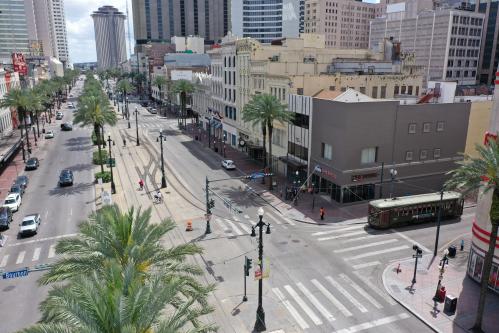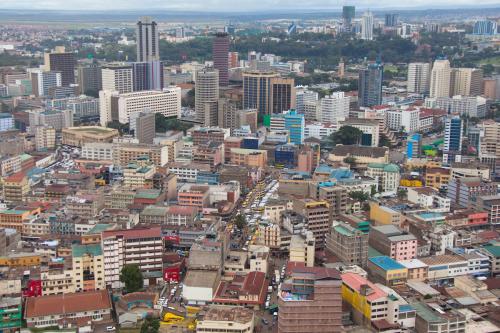Prior to COVID-19, the Sustainable Development Goals (SDGs) were gaining traction among local governments and city leaders as a framework to focus local policy on ambitious targets around inclusion, equity, and sustainability. Several cities published reports of their local progress on the SDGs in Voluntary Local Reviews (VLR), echoing the official format used by countries to report their nation’s progress at the U.N.
Then came the current crisis. The focus immediately shifted to managing the health crisis and the closing of the economy. In the next few years, the priority for local decisionmakers will be recovery. It is too early to know whether the time-bound targets of the SDGs will be reset, but their principles remain useful to organizing a recovery that combines growth, inclusion, and sustainability.
These interviews with city leaders, which occurred at a Brookings SDG Leadership Cities gathering hosted by Mexico City just months before COVID-19 emerged, illustrate this framework. They offer insights into how the principles of the SDGs can provide support on rebuilding an inclusive economy.
1. The SDGs are a basis for sharing solutions
The COVID-19 crisis has stimulated city cooperation and information exchange across borders. Local leaders preparing for the economic recovery after the crisis will need to “build back better,” as urged by the U.N. Secretary General. From housing to infrastructure, urban security, and education, local decisionmakers will need to make choices and innovate. The common language of the SDGs may help cities share their local challenges and best practices with their peers, both at the international level as well as with cities within their country.
“It is important for cities to talk to each other about the different phases of SDG implementation because there is not one right way to do this.”
– Alex Hiniker, Executive Fellow for Sustainability Initiatives, Carnegie Mellon University
2. SDG data helps mobilize action
Recovery from COVID-19 will require addressing multiple dimensions of development. The SDGs encourage cities to identify the priorities they’d like to achieve by 2030 and accurately measure their progress. Doing this can help attract attention and partnerships from local stakeholders. This focus on outcomes also encourages evidence-based policymaking—cities assess where, or to which populations, they need to target policy or mobilize more action and resources. Economic recovery after the COVID-19 crisis increases the need for locally-targeted policies that support the most marginalized communities.
“The SDG dashboard enables us to pose questions out to citizen-led data gathering groups who can help us crowdsource publicly available datasets to create new measures or new indicators within the SDG framework that are particularly relevant to LA”
– Erin Bromaghim, Los Angeles Mayor’s Office of International Affairs
3. Reporting progress on the SDGs demonstrates vision and impact
Cities are exhibiting leadership through the growing movement to report their progress on the SDGs with a Voluntary Local Review. Cities have used VLRs to articulate a vision for sustainable development that integrates a city’s various strategies, plans, priorities, and directives into one coherent package. Once they emerge from the acute response to COVID-19, cities will benefit from creating a cohesive narrative on their recovery that mobilizes efforts across sectors and reports progress toward rebuilding local economies better.
“The Voluntary Local Review is a process to get to a city strategic report and then find a space to put it into the international level.”
– Beryl Mphakathi, Deputy City Manager for Human Settlements, Engineering and Transport, Durban (Ethekwini Municipality)
4. The SDGs serve as leverage for financing and partnerships
Addressing the complex local challenges stemming from COVID-19 warrants a deep rethinking of municipal policies, financing mechanisms, and governance practices. Some cities have used the SDGs to shift local procurement practices to reflect their focus on meeting social needs. Some have aligned their budgeting process to ensure that every expenditure gets the city closer to its SDG goals. Investors and development funders are also paying closer attention to impact opportunities that the SDGs provide at the local level.
“The mapping of our local government program to the global agenda is giving the possibility of engaging into a dialogue with a larger set of partners, most importantly, private investors.”
– Diana Alarcón González, Chief Advisor and Foreign Affairs Coordinator, Mexico City Government






Commentary
How the Sustainable Development Goals can help cities focus COVID-19 recovery on inclusion, equity, and sustainability
Voices from the field
April 29, 2020